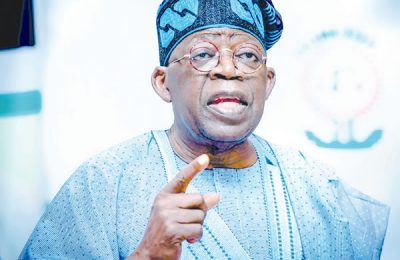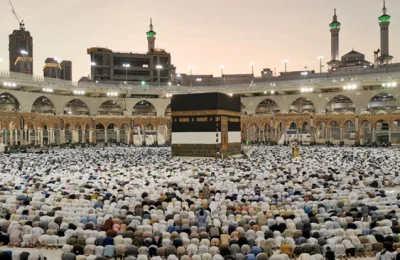
Kwara State Chief Judge and Chairman of the Judicial Service Commission, Justice Abiodun Ayodele Adebara, has called for repositioning the nation’s judiciary to continue serving as a trusted and impartial pillar of democracy.
Speaking at the special session of the High Court to commence the 2023/2024 legal year of the High Court of Kwara State, Justice Adebara mentioned that the justice system has been plagued by a backlog of cases, delays, corruption, and a lack of access to justice for many citizens, especially the poor and marginalized.

To reposition the nation’s judiciary, the Kwara CJ emphasized the need to acknowledge and address the challenges that have hampered its effectiveness in the past.
“I believe that we are at a critical juncture in our country’s history where the judiciary must reposition itself as a trusted and impartial pillar of our democracy. The judiciary is the final arbiter of justice in our society, and it is our responsibility to ensure that every person is treated fairly and equitably under the law.”
The CJ, acknowledging the challenges, added that judicial officers would work together to find innovative solutions to ensure that justice is delivered promptly and efficiently to all.
“As Chief Judge, I pledge to work tirelessly to address these challenges and to restore the faith of the people in our judiciary.
“To achieve this goal, we shall embrace technology and modernize our processes to make them more efficient and transparent. We will also invest in training and capacity building for our judges and support staff to enhance their skills and competencies.
“Furthermore, we will improve access to justice for all citizens, regardless of their social or economic status. We shall work to simplify legal procedures and make the justice system more user-friendly for those who cannot afford legal representation,” he said.
The Kwara CJ, highlighting that the repositioning of the judiciary is a task that requires the concerted efforts of all stakeholders, called upon all members of the legal community, civil society, and the government to work together toward the common goal.
“Let us commit ourselves to building a judiciary that is trusted, efficient, and just. Together, we can achieve this and build a better society for all,” he said.
Justice Adebara also disclosed the grand total of cases registered in all tiers of courts in the state for the 2022/2023 legal year, which just ended as 26,533. Out of these, 13,720 were decided, leaving 12,813 pending cases at the beginning of the current legal year.
He stated that the total revenue generated from both criminal and civil cases in all the courts, as well as the probate fees in Kwara State in the last legal year, amounted to N83,674,936.86.
“In taking stock of our performance in the last legal year, let me start with the Area Courts. A total number of 7,580 criminal cases were registered, out of which 4,825 cases were decided, leaving a total of 35 cases pending. A total sum of N5,836,000.00 was realized as fees. Still on the Area Courts, a total of 6,762 civil cases were registered, out of which 3,448 cases were determined, leaving a balance of 3,314 cases pending. A total sum of N9,570,000.00 was collected as fees.
“Next to consider are the Magistrate Courts, where a total of 6,556 criminal cases were registered, out of which 2,532 cases were disposed of, leaving 4,024 pending cases. A total sum of N7,640,000.00 was realized as fines. Still on the Magistrate Courts, a total number of 4,619 civil cases were registered, out of which 2,220 cases were decided, leaving 2,399 cases pending. A sum of N20,530,000.00 was collected as fees.
“In the various Divisions of the High Court, a total of 318 criminal cases were filed, with 217 cases disposed of, leaving 101 cases pending. A total sum of N4,250,000.00 was realized as fines in the High Court. With regards to the civil cases in the High Court, a total number of 698 cases were filed, out of which 478 cases were determined/decided, leaving 220 cases pending. A total sum of N35,848,936.86 was realized as court fees. This includes the fees realized at the Probate Division of the High Court.”
READ ALSO FROM NIGERIAN TRIBUNE







